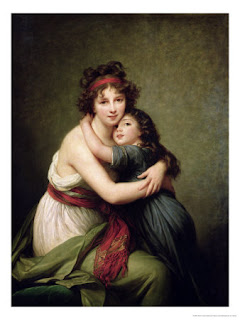I Went to Therapy and All I Got Was This Tee
Metaphors.
My therapist likes to speak in highly illustrative metaphors. He’s the kind of guy who’d explain my life as a Paris runway—chaotic, fabulously dramatic, and in need of editing before it falls flat on its face. He’s the type who’d describe my mental state as a novel—half-finished, filled with plot twists, and just compelling enough to make you feel like you can’t put it down.
You get the idea. In a recent session, I didn't just spill the tea-I upended the whole pot. The topic? A recent verbal cage match with a relative who delivers insults with the precision and flair of Conor McGregor throwing punches at a press conference. And it's not just her. There's a pattern in my life of people treating me poorly. I keep hoping it will be different but it never is.
So there I was, dramatically sprawled on a leather sofa, recounting my backstory like a telenovela star. Tears? Of course. They slid down my artistically blurred face in slow motion, each droplet a dramatic punctuation to my tragic tale. Mascara-stained wad of Kleenex? Absolutely. Maybe some gnashing of teeth and hair pulling--but honestly, that could have been my therapist exhausted by my melodramatic saga He didn't flinch as I spilled my bitter brew of frustration, disappointment, and dysfunction.
He waited until I'd wrapped my scene, then leaned forward, his voice dropping into an ASMR-worthy tone. "You know that Peanuts cartoon with Charlie Brown, right?"
I blinked. "You mean the one where he keeps running at the football and Lucy keeps pulling it away?"
"Yep, that one," he said, his voice thick with tension, like the moment in a telenovela when the heroine reveals she has an evil twin. "Charlie runs toward the football every time, full of hope, only for Lucy to yank it away at the last second. He lands flat on his back. Sounds familiar, doesn't it?"
I nodded and sniffled.
He smiled, leaning back in his chair. "One day, Charlie Brown decides he's had enough. He looks Lucy right in the eye and says, 'I can't trust you. You always pull the ball away.' And Lucy, unfazed, says, 'That's too bad. I just read a book on the different ways to hold a football depending on the play.'"
"Oh, please," I snorted, rolling my eyes. "Tell me he doesn't trust her."
"Charlie Brown is the eternal optimist," he said. "He runs toward the ball again, believing this time will be different. And what do you think happened?"
"He ended up flat on his back, cartoon birds flapping around his bald little head, right?"
He slapped his knee. "You know it! Charlie falls flat on his back. When he finally catches his breath, he looks up at Lucy and says, 'I thought you read a book on how to hold a football?'" He grinned. "'I did,' Lucy says. 'But I wrote the book.'"
I sat up. "So, the moral of the metaphor is that I am a co-dependent Charlie Brown, caught in a cycle of catastrophe?"
He chuckled. "Do you think you are a co-dependent Charlie Brown?"
I flopped back onto the couch as if I had been struck down by the weight of his words.
"Consider this: Charlie keeps running toward the same outcome, hoping for a different result, despite knowing Lucy has no interest in letting him succeed. She enjoys control, and Charlie's optimism keeps him running toward the same disaster."
"So, it's hopeless?"
Screw Lucy, I'm Holding My Own Football
"Charlie Brown has options," he said. "He could play another sport, ask someone else to hold the football, or—"
"Or, he could buy a tee," I interrupted, "and never need anyone to hold his football again."
He raised an eyebrow. "Says the woman who has had the ball yanked so many times, she is afraid to trust."
Touchè. The truth stung, but he wasn't wrong. I'd been so caught up in the cycle—hope, crash, repeat—that I couldn't see the other plays on the field. I could have stopped running, looked for better teammates, or kicked the ball myself. But instead, I kept sprinting toward disaster, convincing myself this time would be different.
"You're saying I need to stay in the game but find a new way to play?"
"Precisely."
I pictured Charlie running his bald-headed, amnesiac ass off, foolishly hoping for a field goal, only to end up flat on his back, staring up at Lucy's smug grin. How many times had I done the same? Running toward the same football, praying it would stay in place, even when I knew it wouldn't. Would this metaphor finally push me to break those unhealthy co-dependent behaviors? Would it challenge me to rewire the neural pathways that kept me running toward disaster? How does one break patterns that have been in play for a lifetime?
Well, not by continuing to play the game the same way, that's for sure. No, I didn't buy a tee—not yet, anyway, but I did snag a tee-shirt with Charlie Brown soaring through the air, mid-crash, right after Lucy yanked the football. I'll wear it as a reminder: I don't have to keep running toward disaster. I don't have to keep trusting the Lucys of the world. And most importantly, I don't have to wait for someone else to hold the ball. Because next time, I will set up my own game, play by my rules, and kick the ball into the end zone. Next time, I am landing on my feet and scoring big.
 |
| Get the tee |




Comments